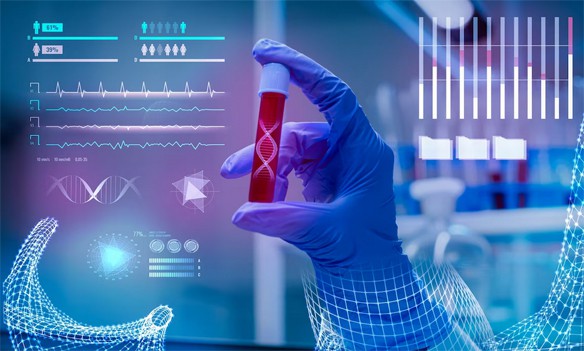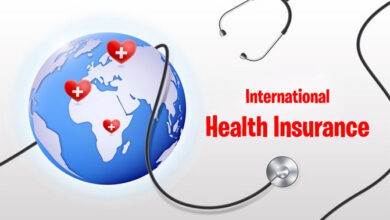
The Internet of Medical Things (IoMT) is a fast-growing technology changing the healthcare industry. After the pandemic, it was obvious that the healthcare industry needed to be improved with advancements. That’s why businesses in this sector are using the services of medical IoT companies. The IoMT service provider can help improve the quality of care by offering the required solution.
Is it easy to implement the IoMT concept in every part of healthcare? Are you thinking about adding this to your business? Now, let’s talk about some of the main challenges you may encounter with IoMT.
- IoMT is a part of IoT that helps improve healthcare businesses by providing different technical devices and solutions.
- IoMT has many positive impacts on healthcare. It streamlines workflow, provides personalized treatment, manages medication, and more.
- When adopting IoMT, you may face challenges like cybersecurity, integrating IoMT devices with your existing workflow, and determining the cost of different solutions.
What is Internet of Medical Things (IoMT)?
The Internet of Medical Things (IoMT) is a network of medical devices, sensors, and applications connected to the Internet. They collect and exchange valuable information. Data are crucial for monitoring patients, conducting medical research, and improving healthcare delivery. The Internet of Things (IoT) is making a big impact in the medical field. One specific area is the Internet of Medical Things (IoMT), which focuses on healthcare.
You can also use wireless and remote devices powered by IoMT for quick and flexible medical data analysis. However, being cautious and mindful of every step you take when digitizing your business with this advanced technology is essential. To ensure your business growth, it’s important to understand the challenges of using IoMT.
How is IoMT Impacting Healthcare?
Before discussing the challenges, let’s discuss some of the main changes IoMT offers its users. Investing in IoT development services can boost your business by improving various operational tasks. Here are some key ways IoMT is impacting healthcare.
1. Streamlined Workflow and Operational Efficiency
Using IoMT can improve your operations and make your workflow more efficient. The Internet of medical things lets you use asset-tracking systems and inventory management solutions. It helps optimize resource utilization, improve supply chain management, and more. Using these advancements, you can allocate resources better and provide timely care to patients.
2. Personalized Treatment and Medication Management
The need for personalized healthcare services is increasing. IoMT-driven enterprise solutions have the potential to meet these demands and transform personalized treatment and medication management techniques.
IoMT allows healthcare providers to analyze patient health data and detect potential health issues. The smart pill, powered by IoMT, can remind patients to take their medication at the right time and with the correct dosage.
3. Telemedicine and Virtual Consultations
IoMT is changing healthcare by offering virtual consultations and telemedicine services. These technologies are called the Internet of medical things trends. They are changing how patients and doctors communicate.
IoMT can collect patient data instantly and share it effortlessly with healthcare professionals. Doctors can use a data-driven approach to assess patients without needing in-person visits, regardless of their location. Virtual consultation connects patients with their healthcare providers, overcoming traditional barriers.
4. Enhanced Patient Monitoring and Remote Care
The IoMT has changed how patients are monitored and involved in their healthcare. The Internet of Medical Things (IoMT) is a system that connects medical devices and wearable sensors together.
These devices collect real-time data from patients, including vital signs like glucose level, blood pressure, heart rate, and oxygen saturation. Vital signs can be observed using different parameters to monitor a patient’s medical condition in real-time.
Challenges of IoMT Implementation
Now, let’s move on to the exciting part of this blog, where we discuss the benefits of choosing IoMT for your healthcare business. Learning about the potential growth of your business with the help of medical IoT companies is essential, but it’s equally important to be aware of the challenges you may encounter. Here are some challenges you may face when working with IoMT.
1. Cybersecurity
IoMT offers the exciting prospect of connecting different healthcare operations into a smooth network. However, cybersecurity is a significant concern with this advancement and is difficult to address. You can enjoy various benefits by using interconnected medical devices, patient data, and sensors. However, there is a risk to the security of sensitive information. Data security breaches can put patient privacy at risk and damage trust in your healthcare organization.
2. Integration with Existing Workflow
The healthcare industry has been around for a while but faces challenges adapting to the digital age. Traditional procedures are trying to catch up by incorporating Internet of Medical Things technologies. Is it easy to fit these pieces together and have a smooth workflow?
No, this is a major challenge your business may face with IoMT. Integrating new technologies into existing systems without disruptions can be challenging. Healthcare professionals follow a set process to provide services to patients. They need help to work well with integration issues.
To overcome this challenge, you’ll need the help of experts who can provide technical consulting services. They will guide you through the detailed approach required to succeed. IoMT devices and solutions should be designed to connect with existing EHR systems easily, clinical decision support tools, and other healthcare software.
3. Regulatory and compliance
Ensuring patient safety and data privacy in healthcare services is very important. Using the internet of medical things can take time and effort regarding regulations and compliance. However, following these healthcare service standards is mandatory because of HIPAA regulations. Therefore, you need to find a solution to overcome this challenge.
No need to worry; make sure to have experts who understand the regulations. When selecting medical IoT companies, ensure they provide solutions designed to meet standards from the beginning. The development company should provide legal guidance to ensure the technology meets compliance standards.
4. Cost and Infrastructure
Implementing and maintaining Internet of Medical Things driven custom healthcare solutions can be costly, but it can also help your business succeed. To keep up with the latest technology, you must invest in devices and software and remember to update them regularly. It’s essential to think carefully about every financial choice you make.
To address this challenge, consider hiring experts who can provide a cost-benefit analysis before investing in the technology. The benefits of IoMT for your business include assessing the return on investment, enhancing patient outcomes, and improving operational efficiencies. Choose development partners who can offer flexible pricing based on your requirements.
Final Words
Learning about IoMT challenges is crucial for using this next-gen technology wisely. The information above should give you an idea of what to expect when investing in the Internet of Medical Things to upgrade your healthcare business.
Use digital solutions to overcome these challenges! To succeed in IoMT, you just need a skilled team and experience. We have experienced experts specializing in providing digital transformation services and helping healthcare businesses succeed. Remember to bookmark our website. The following article will list some top custom healthcare Internet of Medical Things solution development services. These services help to enhance care quality, patient experience, hospital management, and more.



